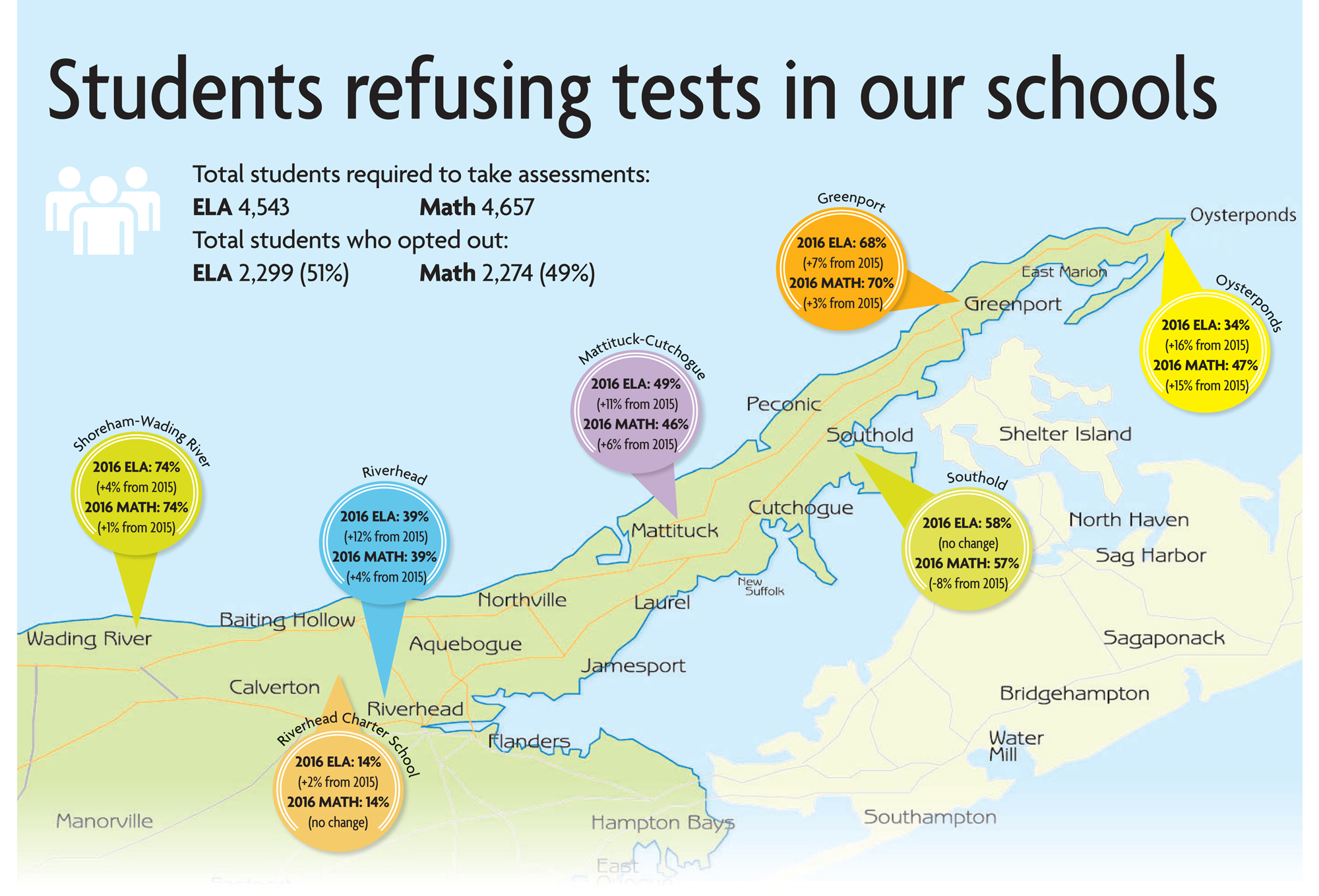Local superintendents’ predictions on the future of state testing


For the past few years, parents and educators have rallied against the state’s latest system of so-called high-stakes testing, which ties teacher evaluations to the controversial Common Core standards. Their principal strategy has been the opt-out movement, under which students refuse to take mandated assessment tests.
We asked local school district superintendents for their prediction on the future of state testing:
 Riverhead Central School District Superintendent Nancy Carney
Riverhead Central School District Superintendent Nancy Carney
“Commissioner Elia has a plan that by 2018, all state assessment questions will be developed by teachers. This will ensure that the questions are age appropriate. It is my hope that the state develops a new testing system that carefully and thoughtfully measures students according to their abilities. Having a testing system that imposes the same standard against those who are disabled or those who are new to the English language is not helpful to educators who are seeking to help all students succeed. It is my hope that future assessments will be just one measure to determine students’ growth and ability.”
 Shoreham-Wading River School District Superintendent Steven Cohen
Shoreham-Wading River School District Superintendent Steven Cohen
“The situation is so confused. I would predict that in a couple of years what’s going on now will seem very different from what we wind up with. There’s too much in the air. The opt-out parents on Long Island and throughout the state are keeping the pressure on. The governor is continuing to ignore the issue of what happens when the moratorium is up. I think those things are political fights that have yet to be resolved. It’s hard to predict how they’ll go. My parting words are that I hope the theme of high-quality performance assessments — authentic assessments — gets on the table. I think the real problem is the emphasis on these multiple choice tests.”
[Related: Even after compromises, opt-out movement gains steam locally]
 Riverhead Charter School executive director and principal Raymond Ankrum
Riverhead Charter School executive director and principal Raymond Ankrum
“My prediction is that in affluent areas around the country, the opt-out movement will continue to grow. However, in urban and rural areas, the areas that are dependent on Title 1-3 federal funding, those students will continue to opt-in. There are two sides of the coin, and both sides make persuasive arguments for their cause. Hopefully New York State can make the necessary adjustments to get superintendents back on board and advocating for accountability and growth measurement.”
 Mattituck-Cutchogue School District Superintendent Anne Smith
Mattituck-Cutchogue School District Superintendent Anne Smith
“I believe that NYSED will continue to work with teachers and educators and parents to revise standards and create more appropriate assessments. The testing question is more difficult to predict. It appears that there will be a transition to new assessments with educator input, however, it is unclear as to how the public will view the testing and the purpose of testing. The purpose of the testing remains unclear to the public since it is tied to educator evaluation. It is my hope that the Board of Regents and the Commissioner of Education will continue to engage leaders and educators, parents and students, as they strive to come up with a better educator evaluation system and student assessments.”
Click on map above to enlarge. (Credit: Times Review Media Group illustration)








